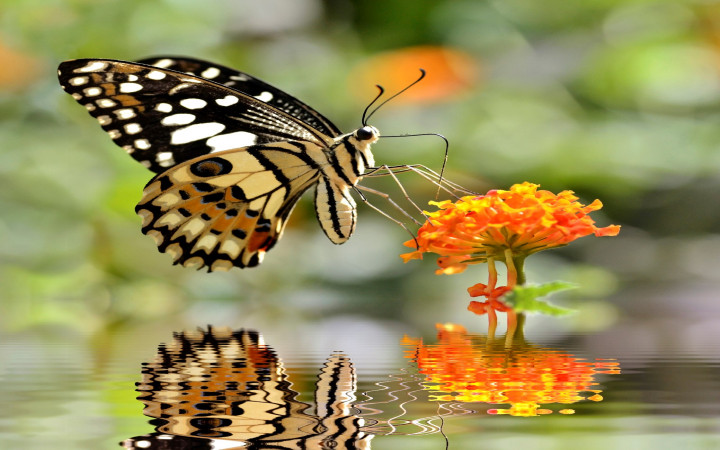Today’s Wonder of the Day was inspired by David. David Wonders, “What is the butterfly effect?” Thanks for WONDERing with us, David!
Have you ever dreamed of time traveling? What if you could press a button and leap a thousand years into the future? Or press another button and jump back several thousand years into the past? The world you end up in might look nothing like what you see today.
Time travel may sound fun. But have you’ve ever seen it happen in a movie or TV show? If so, you know it could be very dangerous. Characters try to avoid changing even the smallest thing in time. That’s because small changes could have major consequences for the time they came from. Where does this idea come from? It’s based on the butterfly effect.
The butterfly effect is a common idea in science fiction today. But its roots are in real science. In 1972, a meteorologist named Edward Lorenz spoke at a convention. He asked an important question: “Does the flap of a butterfly’s wings in Brazil set off a tornado in Texas?”
Did Lorenz really think the flap of a butterfly’s wings could start a tornado? No, of course not! His question was a metaphor. It explained how small changes and actions can lead to unpredictable results. Today, the butterfly effect is still used in the study of weather.
The idea at the heart of the butterfly effect today has reached far beyond the weather. Many people use it to explain how a small action can start a chain of events. Those events can lead to larger and unpredictable effects.
For example, imagine you’ve traveled thousands of years into the past. You’re walking through a swampy jungle, hiding from a velociraptor. A mosquito lands on your arm and you swat it. You kill the bug. No big deal, right? It’s just one mosquito.
Wrong! You’ve made a change that could have an unpredictable effect. Killing that mosquito could have had major consequences in mosquito evolution. That could cause them to be very different or not exist at all in the time you came from. How would that affect all other life on the planet? It’s unpredictable!
But don’t worry, you don’t have to time travel to see examples of the butterfly effect. Consider small actions you might take in your everyday life. For example, many people think about the butterfly effect when they’re thinking about how to treat others. How might saying something nice to a friend have a larger effect on them later in the day? How about years down the road? On the other hand, how might saying something mean or negative have a larger effect than you might think?
What about recycling a plastic bottle? Or planting a tree? How can those small actions lead to larger results? You may not be able to predict the effect these small actions can have. What other examples of the butterfly effect can you think of? Small changes today can have unpredictable consequences for the future.
Standards: NGSS.ESS3.C, NGSS.ESS2.E, NGSS.ETS1.A, , CCRA.L.3, CCRA.L.6, CCRA.R.1, CCRA.R.2, CCRA.R.4, CCRA.R.10, CCRA.SL.1, CCRA.SL.2, CCRA.W.2, CCRA.W.3, CCRA.L.1, CCRA.L.2




